People
Experts spar over Jinsha dam plans
Experts spar over Jinsha dam plans
Fighting has broken out again over hydropower development on China's Jinsha River.
Mehsud removed as Pakistan power transmission chief for inefficiency
Chaudhry Ahmad Mukhtar, Pakistan's new Federal Minister for Water and Power, has removed Rasul Khan Mehsud as managing Director of the National Transmission and Dispatch Company.
Pakistan power transmission chief removed for inefficiency
On his first day in office as Federal Minister for Water and Power, Chaudhry Ahmad Mukhtar removed on Monday the National Transmission and Dispatch Company’s Managing Director, Rasul Khan Mehsud, from his post.
Steep electricity hike forces Taipower chair to resign
Edward Chen, ertswhile Taipower chairman, has resigned after a steep hike in utility rates prompted outrage.
Japan struggles to find new Tepco chief to revive firm
Tokyo Electric Power Co , the operator of Japan's Fukushima nuclear plant, is struggling to find someone to head the troubled firm, sources
xPakistan's energy chief quits amid controversy over tariff
The decision included a Rs3.03 per unit fuel-based increase in power tariff and rejection of the power ministry’s request to consider Rs47,000 per ton as reference fuel price, instead of Rs67,000 per ton. - File photo
xPakistan's energy chief quits amid controversy over tariff
The decision included a Rs3.03 per unit fuel-based increase in power tariff and rejection of the power ministry’s request to consider Rs47,000 per ton as reference fuel price, instead of Rs67,000 per ton. - File photo
TEPCO under scrutiny for hiring ex-bureaucrat
TEPCO's hiring of a former Tokyo Metropolitan Government official to collect the capital's energy policy information placed it under possibe criticism.
Hosono sees bigger govt role in Japan nuclear power
The government should play a bigger part in managing Japan's nuclear power industry , its role currently being questioned following the Fukushima radiation crisis, Environment Minister Goshi Hosono said on Thursday. Japan, currently facing a power crunch with only two of its 54 nuclear reactors currently in operation since the March Fukushima disaster, should also make safety a top priority and operate only the minimum number of atomic reactors necessary, Hosono told a group of reporters. "The first step towards more government involvement in the nuclear industry is turning steps required towards handling severe nuclear accidents into law and requiring utilities to adhere to them," Hosono said. How Japan's power utilities operated nuclear reactors has been questioned heavily after a powerful tsunami and earthquake last March devastated the Fukushima Daiichi atomic power plant, 240 km (150 miles) northeast of Tokyo and triggered the worst radiation crisis since the Chernobyl disaster in 1986. Tokyo Electric Power (Tepco), the utility operating the Fukushima Daiichi plant, has been swamped with huge clean-up, compensation and decommissioning costs, leaving it in need of a massive public fund injection. Japan is currently prodding Tepco to accept more government involvement in the firm in return for the cash bailout. But Hosono said nationalisation of nuclear power would not automatically make conditions safe. "Nationalisation is not a shortcut towards safety. No matter how much we tighten regulation, safety won't be attained unless the people on the ground remain innovative and persistently strive to maintain standards," Hosono said. Hosono, who will also be overseeing Japan's new nuclear watchdog that begins operations in spring, said the government was also likely to deepen its involvement in other nuclear issues such as the processing of plutonium and enriched uranium. POWER CRUNCH Japan faces a potential power crunch in the summer, when demand for electricity traditionally soars, as public concern after Fukushima has prevented the quick restart of nuclear reactors shut down for routine maintenance. All of Japan's 54 nuclear reactors will be offline by April unless some are restarted . The government is applying what it views as stringent stress tests on its nuclear plants which must be passed before a plant can resume output. Keen to avoid an economically disruptive power crunch, the government has been conducting the tests to prove their safety, although local governments hosting the plants have demanded further tests that take into consideration data from the Fukushima disaster. Hosono said like many other countries Japan was still in a development stage towards reinforcing the way it managed risk, steps that included the stress tests. "When considering this, the most powerful argument likely to convince local governments is that severe accidents will not occur even if a disaster equalling Fukushima was to strike," he said. "We are already attempting to explain, but it appears that we have not been able to fully convince the local governments so far." After the first round of stress tests Japan's reactors still need to undergo a second-stage test to satisfy a broader set of criteria. "I think Japan will not, and should not, sacrifice the safety of nuclear power to ensure a stable source of electricity," Hosono said. "Our stance needs to be that we will only allow the minimum amount of nuclear reactors to operate under the extremely strict guidelines." The minister added that Japan would be able to adopt renewable energy efficiently and within a short span of time when society realised the need for such sources of power.
TNB boss says board close to picking his replacement
Tenaga Nasional Berhad's Board of Director's will soon name its new boss.
Indonesian tycoon to diversify into renewable energy
Hashim Djojohadikusumo is diversifying his business interests and setting up new ventures that include renewable energy.
ReneSola appoints Huang as president of Asia-Pacific region
Jijun Shi and Stephen Huang and Jijun Shi have been promoted by ReneSola to new executive positions.
REC shakes up membership as it moves to Singapore and Munich
REC's group management and wafer and silicon division added new members as it moves from Oslo to Singapore and Munich.
China Sunenergy Acting CFO Yongfei Chen takes permanent role
Yongfei Chen, who has served as acting CFO for China Sunergy since November 2010, has accepted the role of CFO for the company.
Agrawala appointed CEO of GE India's energy business
GE India has appointed Banmali Agrawala as President and CEO of its energy business in the country.
Siemens appoints Theodor Scheidegger as CEO of the Solar & Hydro Division
His new role will take effect on November 10.
Lanco's Saibaba foresees India solar costs cheapening by 40%
India's solar power costs could fall by more than 40 percent by 2015, said Lanco Solar CEO V. Saibaba. Solar technology in India could provide a kilowatt hour of power at about 7 to 8 rupees a unit in the next few years, down from the current 11 to 12 rupees, due to surging global capacity, he explained. This will allow the industry to compete against domestic oil and gas firms without the help of state subsidies. It would also enable solar power to become a more viable option to coal, which costs around 2 rupees a unit, in fueling Asia's third largest economy and the world's third-worst carbon polluter. "The most important thing is the economics of scale are coming," Saibaba said on the sidelines of an industry conference. "In the next three to four years, I see the solar power costs coming down to 7 to 8 rupees a unit." Under its Solar Mission plan issued in 2009, India is to produce 1,300 megawatts of power by 2013 and 20 gigawatts by 2022 at an overall investment of about $70 billion. Lanco Solar is one of 37 companies selected by India last year to build solar power projects, as the country looks to boost production from near zero. "Given the current scenario with the way it is growing and the way costs are coming down, our industry will probably not require any financial support from the state going forward in maybe three to four years," Saibaba said.
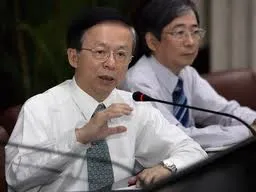
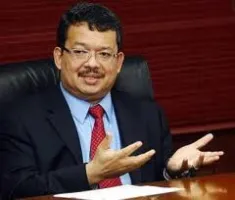
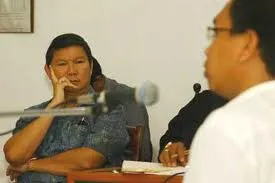

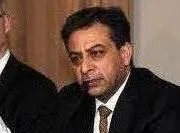
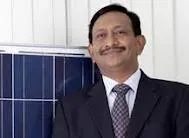

 Advertise
Advertise










